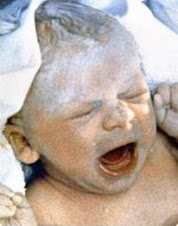A new technique for screening embryos for genetic defects during IVF more than doubles the chances that the embryo will implant in the mother's womb, according to a pilot study by UK and US researchers.
The method, which has several advantages over an existing screening technique, led to established pregnancies - meaning that foetal heartbeat was detected using ultrasound - in 78% of the 23 women who underwent the treatment. Genetic screening involves testing embryos produced during in-vitro fertilisation for abnormal chromosomes that could prevent the embryos from being carried to term.
Fertility doctors using the current technique take one or two cells at day three of the embryo's development, when it has eight cells. Once healthy embryos have been selected, they are implanted back into the patient's uterus. The technique, fluorescent in situ hybridisation, is controversial, with some studies suggesting that it provides no benefit or is counter-productive. The long-term effects of manipulating the embryo are unknown.
The new technique, called comparative genomic hybridisation (CGH), allows doctors to remove cells from the embryo at a later stage, when it is five days old and has more than 100 cells. Removing cells at this stage should be less damaging, and by analysing five or six cells the clinician can be more confident that the genetic abnormality exists in the whole embryo, and not just a few cells.
The researcher who has developed the new technique is planning to offer it in the UK for about £2,000, on top of the fee for IVF, and around the same as standard screening techniques.
"The pregnancy rates we've got so far are absolutely phenomenal," said Dr Dagan Wells at Oxford University and Reprogenetics UK, who led the study. "We're ready to begin a trial in the UK, and we have a couple of licence applications in to the Human Fertilisation and Embryology Authority to start offering CGH to patients." The HFEA is the UK's regulator of fertility clinics.
Dr Mandy Katz-Jaffe at the Colorado Centre for Reproductive Medicine, near Denver, who is part of the team, said: "The patients who are going through this knew this was their last chance of conceiving without going for donor eggs. They have a poor prognosis, with multiple failed cycles. The effect on those patients who have conceived has been beyond anything I can describe." Wells's team tested the CGH method in 23 women aged 30-42, and transferred 50 embryos. After screening and embryo transfer, 20 of the women became pregnant (foetal heartbeat confirmed by ultrasound).
Subscribe to:
Post Comments (Atom)
| Powered By widgetmate.com | Sponsored By Digital Camera |







No comments:
Post a Comment